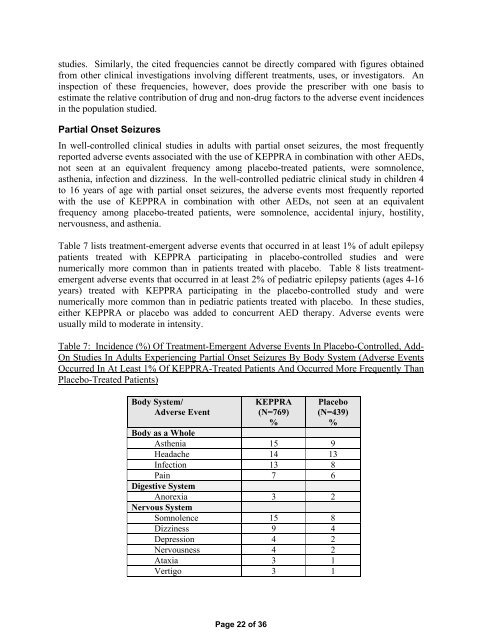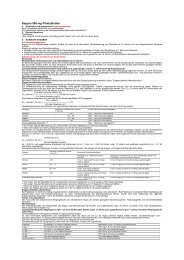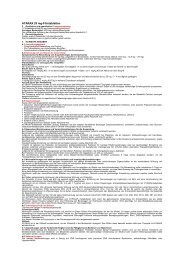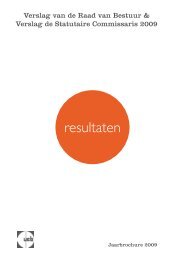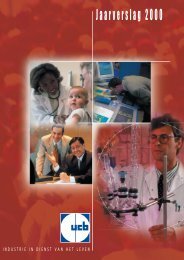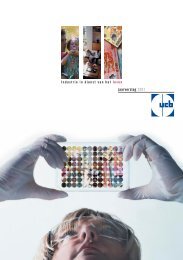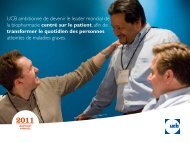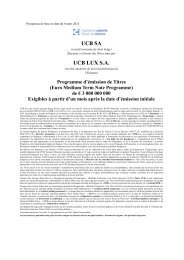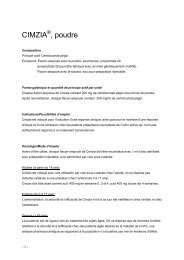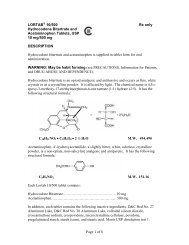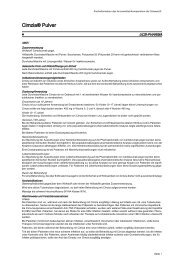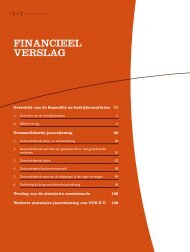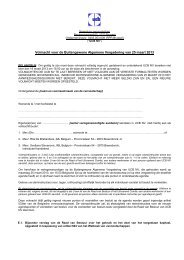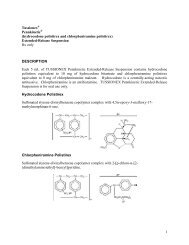KEPPRA (levetiracetam) Rx only 250 mg, 500 mg, 750 mg ... - UCB
KEPPRA (levetiracetam) Rx only 250 mg, 500 mg, 750 mg ... - UCB
KEPPRA (levetiracetam) Rx only 250 mg, 500 mg, 750 mg ... - UCB
Create successful ePaper yourself
Turn your PDF publications into a flip-book with our unique Google optimized e-Paper software.
studies. Similarly, the cited frequencies cannot be directly compared with figures obtained<br />
from other clinical investigations involving different treatments, uses, or investigators. An<br />
inspection of these frequencies, however, does provide the prescriber with one basis to<br />
estimate the relative contribution of drug and non-drug factors to the adverse event incidences<br />
in the population studied.<br />
Partial Onset Seizures<br />
In well-controlled clinical studies in adults with partial onset seizures, the most frequently<br />
reported adverse events associated with the use of <strong>KEPPRA</strong> in combination with other AEDs,<br />
not seen at an equivalent frequency among placebo-treated patients, were somnolence,<br />
asthenia, infection and dizziness. In the well-controlled pediatric clinical study in children 4<br />
to 16 years of age with partial onset seizures, the adverse events most frequently reported<br />
with the use of <strong>KEPPRA</strong> in combination with other AEDs, not seen at an equivalent<br />
frequency among placebo-treated patients, were somnolence, accidental injury, hostility,<br />
nervousness, and asthenia.<br />
Table 7 lists treatment-emergent adverse events that occurred in at least 1% of adult epilepsy<br />
patients treated with <strong>KEPPRA</strong> participating in placebo-controlled studies and were<br />
numerically more common than in patients treated with placebo. Table 8 lists treatmentemergent<br />
adverse events that occurred in at least 2% of pediatric epilepsy patients (ages 4-16<br />
years) treated with <strong>KEPPRA</strong> participating in the placebo-controlled study and were<br />
numerically more common than in pediatric patients treated with placebo. In these studies,<br />
either <strong>KEPPRA</strong> or placebo was added to concurrent AED therapy. Adverse events were<br />
usually mild to moderate in intensity.<br />
Table 7: Incidence (%) Of Treatment-Emergent Adverse Events In Placebo-Controlled, Add-<br />
On Studies In Adults Experiencing Partial Onset Seizures By Body System (Adverse Events<br />
Occurred In At Least 1% Of <strong>KEPPRA</strong>-Treated Patients And Occurred More Frequently Than<br />
Placebo-Treated Patients)<br />
Body System/<br />
Adverse Event<br />
Page 22 of 36<br />
<strong>KEPPRA</strong><br />
(N=769)<br />
%<br />
Placebo<br />
(N=439)<br />
%<br />
Body as a Whole<br />
Asthenia 15 9<br />
Headache 14 13<br />
Infection 13 8<br />
Pain 7 6<br />
Digestive System<br />
Anorexia 3 2<br />
Nervous System<br />
Somnolence 15 8<br />
Dizziness 9 4<br />
Depression 4 2<br />
Nervousness 4 2<br />
Ataxia 3 1<br />
Vertigo 3 1


